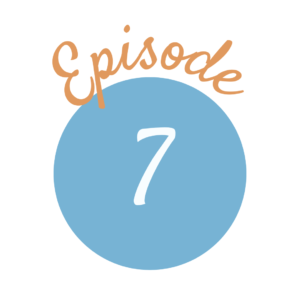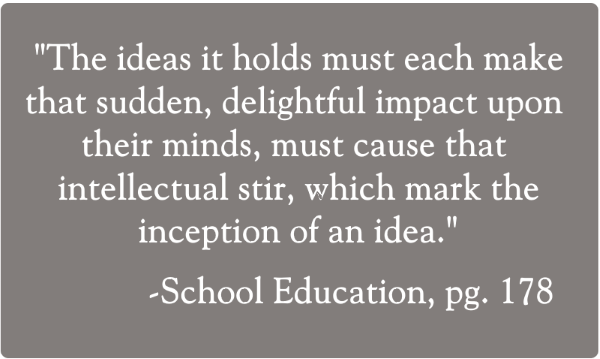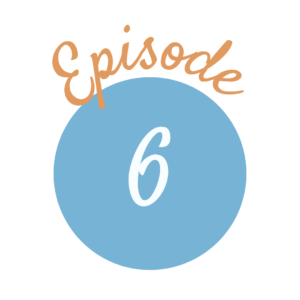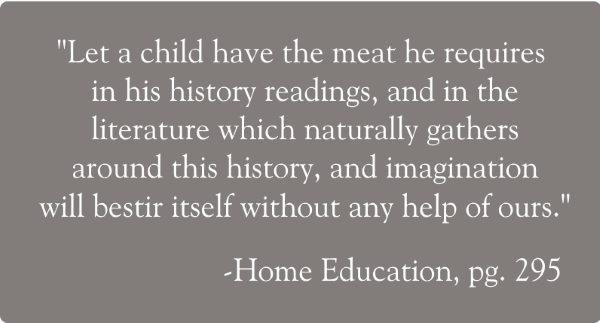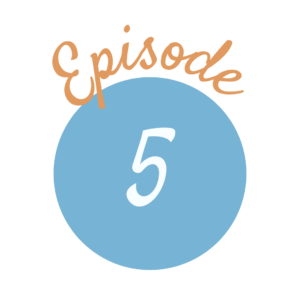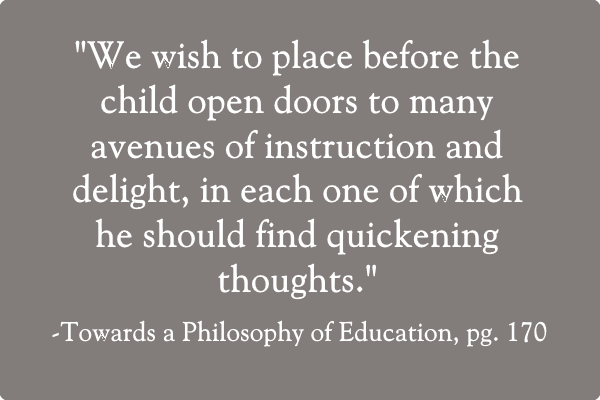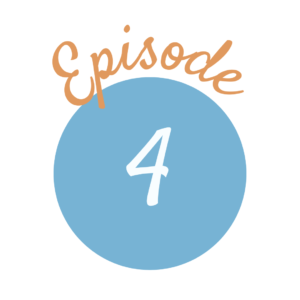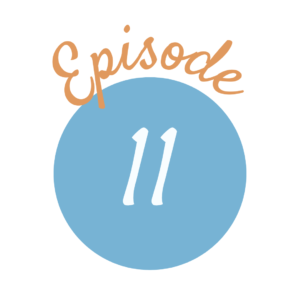
The subject of history brings groans to some and yawns to others, but Mason considered it the pivotal subject in her curriculum. Listen in as these moms discuss some of Charlotte Mason’s beliefs about the teaching of history and why it is centrally important to the subjects that give the “Knowledge of Man” and provides much, much more than a knowledge of dates and facts of wars and famous events.
Listen Now:
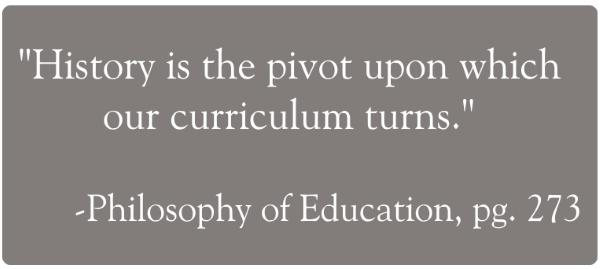

“Not what we have learned, but what we are waiting to know is the delectable part of knowledge.” (Vol.3, p. 224)
“Next in order to religious knowledge, history is the pivot upon which our curriculum turns.” (Vol. 6, p. 273)
“But to read English history and fail to realise that it is replete with interest, sparkling with episode, and full of dramatic incident, is to miss all the pleasure and most of the instruction which its study, if properly pursued, can give.” (vol. 1, pp. 290-91)
“[H]istory is an entrancing subject of study,” (Vol. 1, p. 292)
“[I]t seems to be necessary to present ideas with a great deal of padding, as they reach us in a novel or poem or history book written with literary power.” (Vol. 6, p. 109)
“For the matter for this intelligent teaching of history, eschew, in the first place, nearly all history books written expressly for children; and in the next place, all compendiums, outlines, abstracts whatsoever.” (Vol. 1, p. 281)
“[O]ut of a whole big book he may not get more than half a dozen of those ideas upon which his spirit thrives; and they come in unexpected places and unrecognised forms, so that no grown person is capable of making such extracts from Scott or Dickens or Milton, as will certainly give him nourishment. It is a case of,––’In the morning sow thy seed and in the evening withhold not thine hand for thou knowest not whether shall prosper, either this or that.’ [Eccl. 11:6]” (Vol. 6, pp. 109-110)
“Now imagination does not descend, full grown, to take possession of an empty house; like every other power of the mind, it is the merest germ of a power to begin with, and grows by what it gets; and childhood, the age of faith, is the time for its nourishing. The children should have the joy of living in far lands, in other persons, in other times––a delightful double existence; and this joy they will find, for the most part, in their story books. Their lessons, too, history and geography, should cultivate their conceptive powers. If the child do not live in the times of his history lesson, be not at home in the climes of his geography book describes, why, these lessons will fail of their purpose.” (Vol. 1, p. 153)
“It is a great thing to possess a pageant of history in the background of one’s thoughts.” (Vol. 6, p. 178)
“To us in particular who are living in one of the great epochs of history it is necessary to know something of what has gone before in order to think justly of what is occurring to-day.” (Vol. 6, p. 169)
“It is not too much to say that a rational well-considered patriotism depends on a pretty copious reading of history, and with this rational patriotism we desire our young people shall be informed rather than with the jingoism of the emotional patriot.” (Vol. 6, p. 170)
“[A]void giving children cut-and-dried opinions upon the course of history while they are yet young.” (Vol. 1, p. 288)
“I will not press my point by urging the moral bankruptcy which has been exposed to us during recent years as co-existent with, if not caused by, utilitarian education.” (Vol. 6, pp. 282-83)
“He who reads history in this way, not to pass examinations, nor to obtain culture, nor even for his own pleasure (delightful as such reading is), but because he knows it to be his duty to his country to have some intelligent knowledge of the past, of other lands as well as of his own, must add solid worth to the nation that owns him.” (Vol. 4, pp. 74-75)
“[T]hat the history we teach may be the more living, we work in, pari passu, some of the literature of the period and some of the best historical novels and poems that treat of the period; and so on with other subjects.” (Vol. 3, p. 67)
“Literature is hardly a distinct subject, so closely is it associated with history, whether general or English; and whether it be contemporary or merely illustrative; and it is astonishing how much sound learning children acquire when the thought of an age is made to synchronise with its political and social developments.” (Vol.6, p. 274)
“The co-ordination of subjects is carefully regulated without any reference to the clash of ideas on the threshold or their combination into apperception masses; but solely with reference to the natural and inevitable co-ordination of certain subjects. . .we should read such history, travels, and literature as would make the Spanish Armada live in the mind.” (Vol. 3, p. 231)
“Every nation has its heroic age before authentic history begins: these were giants in the land in those days, and the child wants to know about them. He has every right to revel in such classic myths as we possess as a nation…” (Vol. 1, p. 284)
“Much that has been said about the teaching of geography applies equally to that of history.” (Vol. 1, p. 279)
“It is a great thing to possess a pageant of history in the background of one’s thoughts. We may not be able to recall this or that circumstance, but, ‘the imagination is warmed’; we know that there is a great deal to be said on both sides of every question and are saved from crudities in opinion and rashness in action. The present becomes enriched for us with the wealth of all that has gone before.” (Vol. 6, p.178)

If you would like to study along with us, here are some passages from The Home Education Series and other Parent’s Review articles that would be helpful for this episode’s topic. You may also read the series online here, or get the free Kindle version from Fisher Academy.
Home Education (Volume 1): Part V, Chapter XVIII
School Education (Volume 3): Appendix II, notes pertaining to history lessons and sample exam questions and answers
Towards a Philosophy of Education (Volume 6): Book I, Chapter 10, Section II, a

